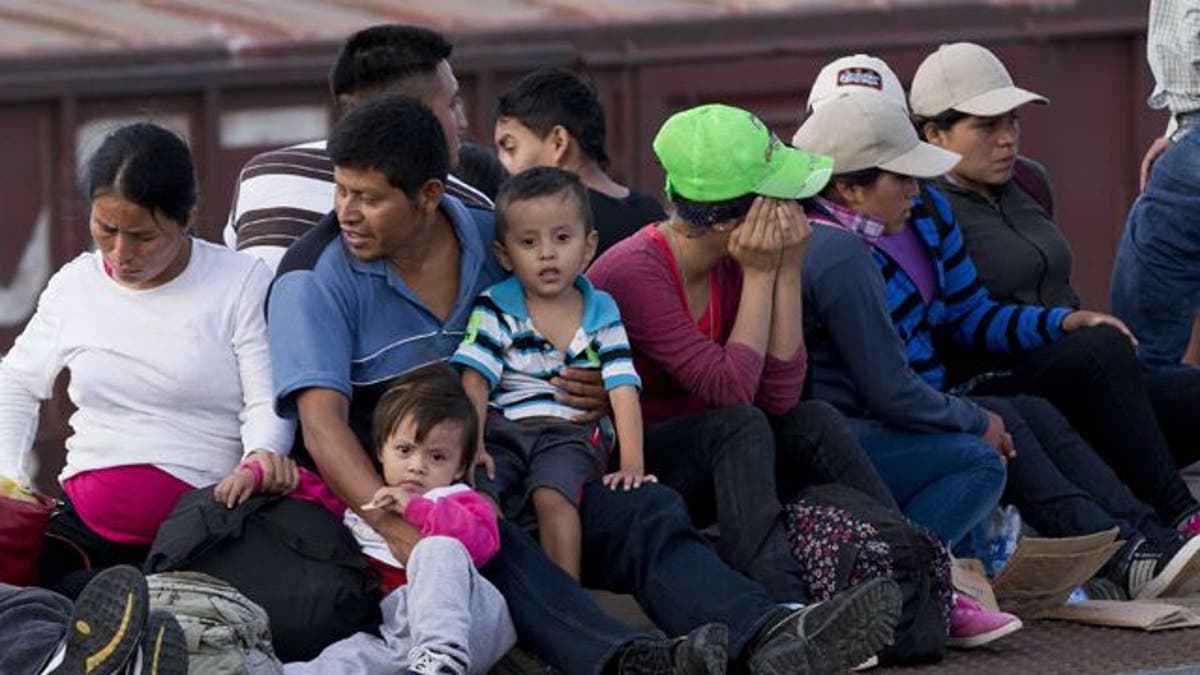
While President Obama was somewhere over the Atlantic on Saturday, the White House issued the announcement that his promised illegal alien amnesty by executive fiat would be delayed until after the midterm elections.
The announcement was an explicit admission on the part of the administration that, in spite of years of effort by both left-leaning advocacy groups and the business lobby to create the illusion that Americans now welcome amnesty for illegal aliens, public support for such policies is as thin as ever. The politics of amnesty is now settled: Nobody so publicly retreats from a promise and incurs the wrath of his political base just two months before a critical election without clear evidence that such policies are overwhelmingly opposed by the American public.
The president’s postponement of his amnesty announcement is a hopeful sign that many members of his own party – even those who support his policy objectives – were taken aback by the threat of unconstitutional means to achieve those ends.
But the reality that the American people neither support amnesty for illegal aliens, nor an end run around the Constitution’s Separation of Powers doctrine to achieve such an amnesty, does not mean that president will not act unilaterally to grant amnesty to millions of illegal aliens. The Obama administration has merely delayed, not renounced, the idea of granting amnesty to illegal aliens without enactment of legislation by .
Whether the calendar reads September or November, amnesty for an estimated 5-6 million illegal aliens remains bad public policy. Before or after the elections, a president substituting his own policies in place of laws that have been enacted by is a dangerous assault on our constitutional system of government.
The current crisis at our southern border illustrates why amnesty is bad public policy. The surge of minors crashing our border – both unaccompanied and as part of family units – can be directly traced to President Obama’s 2012 decision to grant amnesty to a previous wave of illegal aliens who settled in the U.S. illegally as minors. While poverty and violence in Central America have not gotten any worse over the past two years (in fact, murder rates, though still unacceptably high, have actually declined in the region), the inevitable result of rewarding illegal behavior is more illegal behavior.
- How A N.Y. Lawyer Is Getting Unaccompanied Minors Legal Status Using Controversial 2008 Law
- N.J. Governor Chris Christie’s Mission To Mexico Is Opportunity For Both To Shine
- Ted Cruz To Stump In New Hampshire For Conservative Rising Star Aiming For U.S. Congress
- Tuesday Primary Could Lead To First Latino Or First Female Governor Of Rhode Island
- Meet Brazilian Pop Star Ivete Sangalo
But amnesty would do more than just further undermine the integrity of our immigration laws. The president’s delayed executive amnesty is expected to include work authorization for illegal aliens who would benefit from the program. These illegal aliens would become eligible to compete with millions of unemployed, underemployed, and discouraged American workers for an already inadequate supply of jobs.
Moreover, at a time when there is renewed concern about sleeper cells of radical Islamist terrorists poised to carry out attacks on U.S. soil (an issue discussed by Western leaders at the NATO summit), the president’s contemplated actions would increase the risk that people who pose a real danger to the United States would gain quasi-legal status here. It is simply not feasible to carry out meaningful background checks on millions of immigration law violators that provide us any reasonable assurance that security risks can be screened out.
Then there is the constitutional issue. The Constitution is very clear about Congress’ plenary authority to make immigration policy. President Obama may not like the laws that Congress has enacted and he may be frustrated by the refusal of the Legislative Branch to enact the policy changes he wants. But neither his unhappiness nor his frustration justify actions that New York Times columnist Ross Douthat aptly described as “lawless, reckless, a leap into the antidemocratic dark.”
Altering his timeline for a blatant abuse of his constitutional authority may make the president and his party less accountable to voters, but it would in no way make it less lawless, reckless or antidemocratic. President Obama has every right to continue making his case to Congress and the American people for the enactment of his immigration agenda during the final two years of his presidency, but ultimately he must accept the constitutional constraints of his office.
The president’s postponement of his amnesty announcement is a hopeful sign that many members of his own party – even those who support his policy objectives – were taken aback by the threat of unconstitutional means to achieve those ends. The White House would not have endured this political embarrassment if there was not significant opposition to unilateral action from many Democrats in Congress.
If Republicans and Democrats can agree on nothing else they should be able to come together to protect the integrity of our Constitution and the democratic process. They must make it clear to President Obama that before or after the elections, they will be united in opposing his abuse of executive authority to grant amnesty to entire classes of illegal aliens without approval by Congress.
